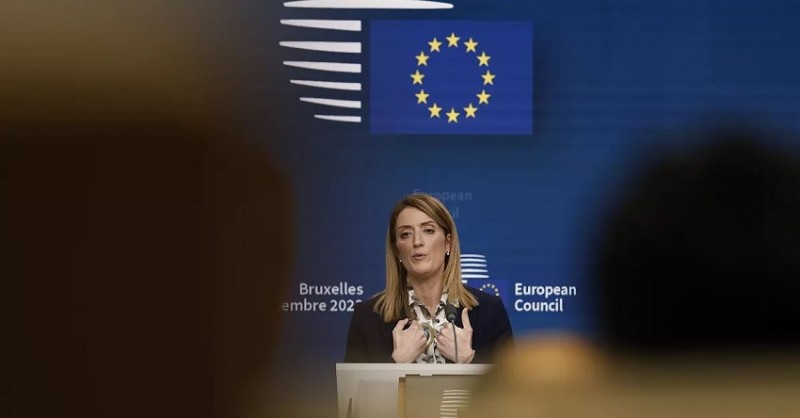
Next month, around 400 million European Union citizens will head to the polls to elect members of the European Parliament (MEPs). This election is one of the largest democratic events globally. With rising living costs and farmer dissatisfaction, far-right parties aim to increase their influence, while the conflicts in Gaza and Ukraine weigh heavily on voters' minds.
A key question is whether Ursula von der Leyen will continue as the President of the European Commission, the EU's most prominent figure.
Here’s a breakdown of what to expect:
WHEN IS THE VOTE?
The European Parliament elections occur every five years across the 27 EU member states. This will be the 10th election since 1979 and the first since Brexit. Voting takes place from June 6-9, with results announced on the evening of June 9 after all polling stations close.
HOW VOTING WORKS
Voting begins on Thursday in the Netherlands and concludes on Sunday when most countries hold their elections. Citizens vote directly, and the number of MEPs elected from each country is based on population size, ranging from six for smaller countries like Malta, Luxembourg, and Cyprus to 96 for Germany.
In 2019, the EU had 751 MEPs, but after Brexit, this number dropped to 705. This year, the total will increase to 720, with 12 countries gaining extra seats. National political parties contest the elections, but elected MEPs usually join transnational political groups.
WHO IS VOTING?
Voting ages vary: Belgium allows 16-year-olds to vote, following a law passed in 2022. Germany, Malta, and Austria also permit 16-year-olds to vote, while Greece's minimum voting age is 17. In all other member states, the minimum age is 18. The minimum age to stand for election ranges from 18 to 25, depending on the country.
WHAT ABOUT TURNOUT?
Historically, EU election turnout has been low, but 2019 saw a notable increase to 50.7%. The latest European Parliament Eurobarometer survey indicates a growing interest, with 71% of Europeans likely to vote this time.
MAIN ISSUES
Key issues include Russia’s invasion of Ukraine, defense and security, economic concerns, jobs, poverty, public health, climate change, and the EU’s future. Defense and security are particularly prominent, being top issues in nine countries.
WHAT DO EU LAWMAKERS DO?
The European Parliament, elected by EU citizens, serves as a counterbalance to the powerful European Commission. Although it cannot propose legislation, its influence is growing. The Parliament votes on laws affecting climate, banking, agriculture, fisheries, security, and justice, and it also approves the EU budget. MEPs must approve all EU commissioners and can force the entire commission to resign with a two-thirds vote.
CURRENT PARLIAMENT MAKEUP
As of April, the center-right European People’s Party (EPP) is the largest group with 176 seats, followed by the center-left Socialists and Democrats (S&D) with 139 seats. The liberal Renew group holds 102 seats, while the Greens and regionalist parties have 72 seats.
FAR-RIGHT GAINS
Far-right groups like the European Conservatives and Reformists (ECR) and Identity and Democracy (ID) may become the third- and fourth-largest groups in the Parliament. However, their internal differences make it uncertain how they will impact the EU’s agenda, especially regarding support for Ukraine.
WHAT HAPPENS AFTER THE ELECTION?
After the election, MEPs will elect their president at the first plenary session from July 16-19. They will then nominate the President of the European Commission, likely in September. Ursula von der Leyen, the current president, has a good chance of reappointment but must secure enough support. She has faced criticism for suggesting she could work with hard-right groups depending on the election outcome.